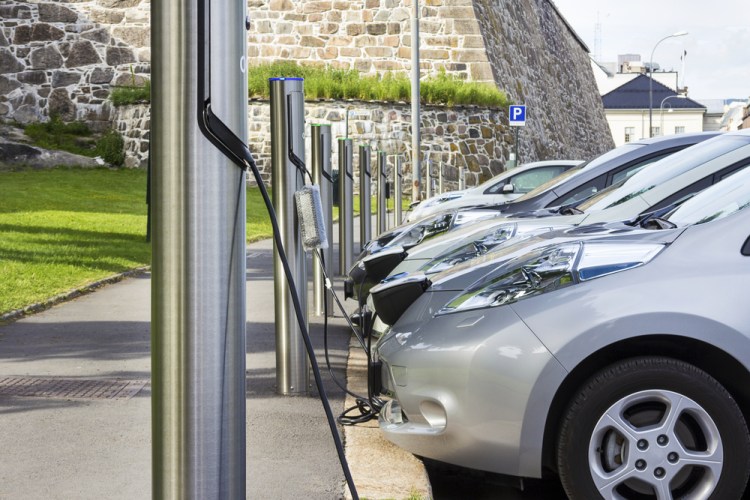Wouldn’t it be great if two out of every three times you pulled up to a gas pump, you didn’t have to pay anything for your fuel?
That’s the equivalent of what electric-car drivers experience using public-charging infrastructure.
Today, more often than not, they pay nothing to plug in.
The majority of U.S. public charging stations are currently free to use, according to PlugShare’s quarterly report on electric-car charging infrastructure (via Charged EVs).
The popular PlugShare app helps plug-in electric car drivers find nearby charging stations, including some at private homes whose owners are willing to let others recharge.
The company found that 63 percent of “public access” charging stations are currently free to use. That’s a total of 8,856 locations.
![Electric-car charging stations at Target in Fremont, CA [photo by Jack Brown] Electric-car charging stations at Target in Fremont, CA [photo by Jack Brown]](http://images.thecarconnection.com/sml/electric-car-charging-stations-at-target-in-fremont-ca-photo-by-jack-brown_100419233_s.jpg)
That figure includes both DC fast-charging sites and the more common, but slower, 240-volt Level 2 stations. In addition, free charging is available at 76 percent of “restricted access” sites — 1,133 locations in total.
“Restricted access” locations are any stations on private property, such as workplace stations that are only available to employees, or stations operated by dealers for customer use.
The preponderance of free public charging stations gives electric cars a major advantage when it comes to operating costs.
And that’s before per-mile operating costs that can be one-third to one-fifth those of a 25 mpg gasoline car, depending on the cost of electricity.
That’s great for owners, but what are the businesses hosting all of these free charging stations getting out of it?

In a word, exposure.
Offering charging gives businesses a new way to attract customers and keep them around longer as their cars charge, according to a new blog post from the Sierra Club.
Electricity is quite cheap, so even with operating costs factored in, free charging stations are still worthwhile for many businesses. Treating charging as an amenity like Wi-Fi may also be the only way for businesses to see a real profit.

A business hosting a Level 2 station with two connectors, experiencing 10 charging sessions per day at $2.00 per session, will recoup its investment in five to six years, according to Navigant Research.
But that $2.00 is about twice what the average driver pays using home charging.
Many drivers don’t rely on public charging to get around, and that means individual stations may not see the traffic needed to turn a profit.

Hopefully the use of charging stations to lure in customers will remain appealing enough for businesses.
A network of public charging stations that rivals the existing reach of 125,000 gas stations would greatly help electric-car adoption.
And with fewer than half a million plug-in cars on the road, and less than 20,000 charging stations, there’s still a lot of progress to be made.
This article first appeared on Green Car Reports.
This story originally appeared on Green Car Reports. Copyright 2015
VentureBeat's mission is to be a digital town square for technical decision-makers to gain knowledge about transformative enterprise technology and transact. Learn More

